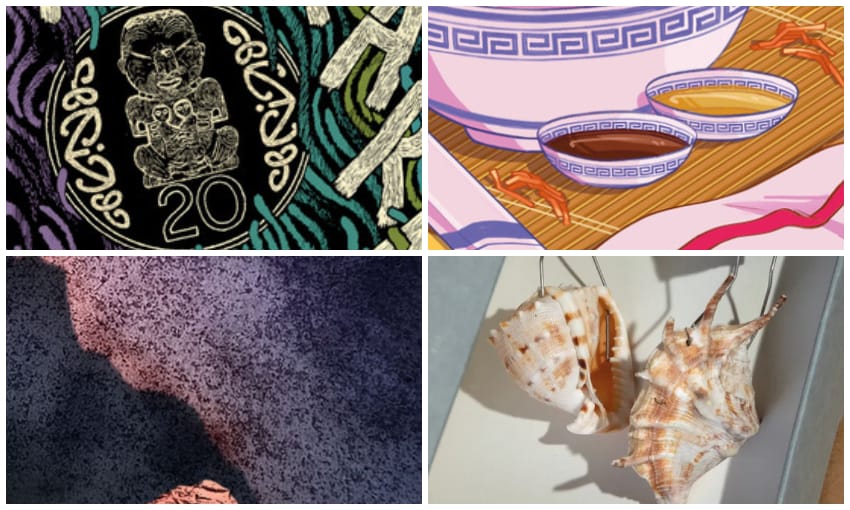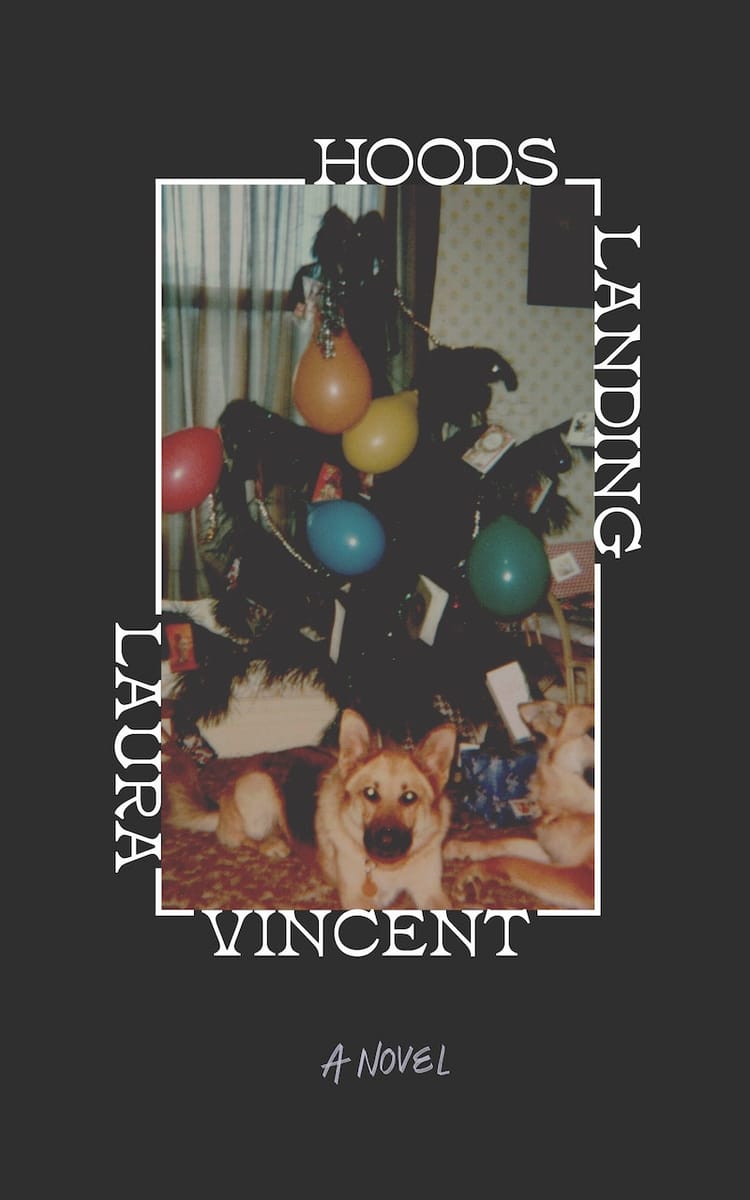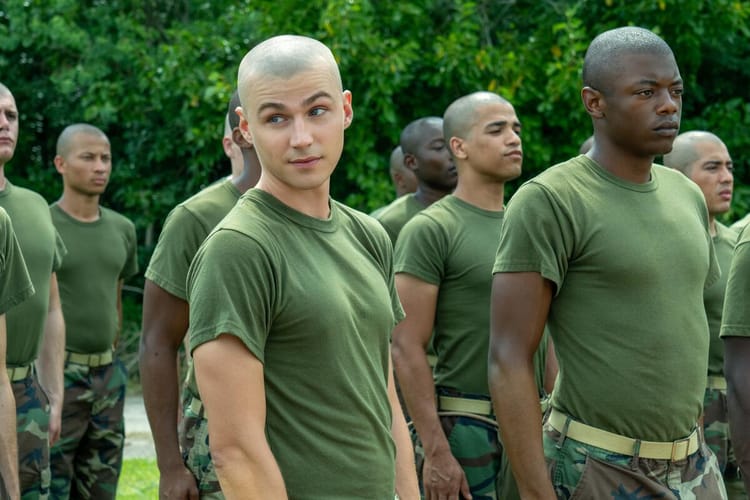Critical Corner: Best Books of 2024

A little bit late, but hey, here's my best books of last year if you want to get a head start on reading before the year properly starts!
International
Help Wanted by Adele Waldman
Superstore has been one of my core texts for the Covid era: funny, sad, dark, weird in its own way. On the surface, Help Wanted, Adele Waldmans novel set amongst the lower rungs of a big box store, feels like Superstore. However, it quickly reveals itself to stretch further in either direction. It’s bleaker, sure, revealing of how deep humans can go ito banal cruelty and pettiness when there is so little on the line. But it’s also more hopeful, it shows how humans fight to cling to what little makes them human in a system that tries to strip them of it.
Martyr by Kaveh Akbar
My favourite of the Booker noms that I’ve read. Gay, angsty, using queer narratives to reflect an immigrant experience? Put it in my veins. Throw in a little bit of pop culture magic realism? Hook me up to a permanent supply.
Consent: A Memoir by Jill Ciment
The hook for this memoir is clear: famous author revisits a marriage she’s already written about, that found her a 17-year-old wife to a 42-year-old husband. Ciment views her own marriage with the necessary distance that one needs to continue breathing, I can imagine. What’s most fascinating about the book is how it is an interrogation of memoir as form in general; it’s never autobiography, we’re always framing and reframing our lives.
Beautyland by Marie-Helene Bertino
Oof. This book killed me. In the middle of seemingly nowhere, United States, a baby is born. That baby is, however, an alien beacon sent from a culture hundreds of thousands of light years away to report back on Earth. Bertino follows her life through her difficult high school period, her time as a prodigiously talented actor, and then as a cult writer. All throughout, the most alien thing we encounter is the strangeness of humanity itself.
Dear Dickhead by Virginie Despentes
Millennial culture summed up in one novel. Three characters: Rebecca Latte, famous actor. Oscar Jayack, a novelist who insulted her appearance online. Zoe Katana, a blogger who was harassed by that same novelist. Despentes largely follows the increasingly unhinged letters sent between the actor and the novelist, touching on the MeToo movement, gen z culture, poptimism, and what it means to age sensitively and intelligently. I didn’t love reading this book, but I’m glad I read it.
Wandering Stars by Tommy Orange
This prequel-sequel to There There (equally worth reading) revolves around the aftermath of the powwow massacre in that novel, from the point of view of one of the victims, Orvil Red Feather. It also goes back generations, starting with his ancestor Jude Star, a survivor of the 1864 Sand Creek massacre, and spiralling towards the present day. Each story fills in the gaps of this bloodline’s story, further proof that wounds rarely stop with the wounded.
Small Rain by Garth Greenwell
A book about suffering shouldn’t be this beautiful. Greenwell is perhaps the best modern novelist at exploring what exactly a body goes through, be it in a sexual context or a spiritual one. He hones in on the experience of a poet hospitalised during the lockdown, and isolated, and what it means to be connected, and then disconnected, from the world. It could be unrelenting and bleak, but Small Rain is anything but. It’s a profound reminder to keep on living, and taking our pleasures where we can.
Tell Me Everything by Elizabeth Strout
It seems too easy to put an Elizabeth Strout book on a “best books” list. Of course a book written by Elizabeth Strout is great. She is our most humanist author, whose love for her characters doesn’t eclipse her desire to hold them to high moral standards. Olive Kittredge and Lucy Barton meeting is my literary MCU.
The Message by Ta-Nehisi Coates
I think any of these books would improve your life in some way but if you’re interested in being a storyteller of any kind in the modern age, you need to read Ta-Nehisi Coates’ latest. His reporting on Gaza is essential, obviously, but I keep returning to his insistence on storytelling as a moral imperative. I’ll leave this below:
“All our conversations of technique, of rhythm and metaphor, ultimately come down to this – to the stories we tell, to the need to haunt, which is to say to make people feel all that is at stake.

New Zealand
Killer Rack by Sylvan Spring
I have a big pile of books in the middle of my house that I insist is arranged for ease of access and so I can pick up a book every now and then and give it a skim. The book I’ve reached for more than any other this year has been Killer Rack. So many banger lines, so many impeccably titled poems (“7 remarkable spiritual reasons for your ears ringing”), but ultimately just a deeply human collection that should be relatable for anybody who has ever stolen a drink from the flat fridge at a house party.
when i open the shop by romesh dissanayake
From my review of this excellent debut: “dissanayake also, blessedly, takes a hatchet to the absolute fiction of Wellington as a city of whiteness — strangely, a perception mostly held by Pākehā who spend more time reading books and newspapers about their city rather than actually living in it. dissanayake’s Te Whanganui-a-Tara is a vibrant place (although even his protagonist has to make concessions to public servants at one point) and has the convincing feel of a city portrayed by someone who has actually lived in it, not just briefly studied there.”
Ash by Louise Wallace
A pandemic novel? An apocalyptic prophecy? The trials of isolated motherhood, write large and dark? All of the above? Ash was dark, unsettling, funny
Tarot by Jake Arthur
From my review: “A good book of poetry feels like being inside someone else’s head, lightly bouncing around it. A great book opens the edges of your own mind, opening it up to a bigger world. Tarot is the latter. As beautiful as it is to be gifted Arthur’s poetry and his sense of place and image, it’s even more a pleasure to feel just a bit smarter, and richer after reading it.”
Bad Archive by Flora Feltham
My favourite piece of non-fiction this year can be found as the centrepiece essay of Flora Feltham’s Bad Archive, “The Raw Material”. Nothing summed up what it means to be in a long-running relationship more potently and adroitly than this. Again, from my review (for Metro): “I’d always assumed my marriage was harmonious,” Feltham writes. “But maybe that was actually just silence. Now we needed to learn the harmony of daily honesty.” Across 30 pages, Feltham’s observations on what it means to be a person still working on themselves and their relationship is some of the most clear-eyed and open-hearted writing I’ve ever read about romance.”
Poorhara by Michelle Rahurahu
Which leaves me with Poorhara, the best piece of New Zealand fiction I read this year. Apologies to lin out to another review of mine, but I’m still getting warmed up for the year. I’ll leave you with a call to action, though. Go buy Poorhara. Support novels like this. Novels like these create readers, and better yet, they enable storytellers.
“I stopped about two thirds through Poorhara to take a walk. It wasn’t because the novel was too much or too heavy – Rahurahu has a spy novelist’s mastery of knowing how to amp up the tension of certain movements to keep the reader enthralled, and then slowly letting the air out. Instead, it was that I wanted Poorhara, I wanted Star and Erin, to take up more space in my brain. I wanted to think about them more, I wanted to consider them more, I wanted to imagine around them more.
That, for me, is the indicator of a great novel. In just 300 pages, following two cousins in a car, Michelle Rahurahu tells the story of a nation in conflict, a deeply disparate society, and a family surviving through it. It is as honest a portrait of Aotearoa as I’ve read all year, and am likely to for many years.”
Writing and reporting takes time, and if you want to support the amount of time it takes (and ensure that the scant amount of meaningful coverage of local art can continue), please considering supporting Dramatic Pause with a paid subscription ($8 p/m, $60 p/a) and if you can't afford a paid subscription, please share the work with your networks!





Member discussion